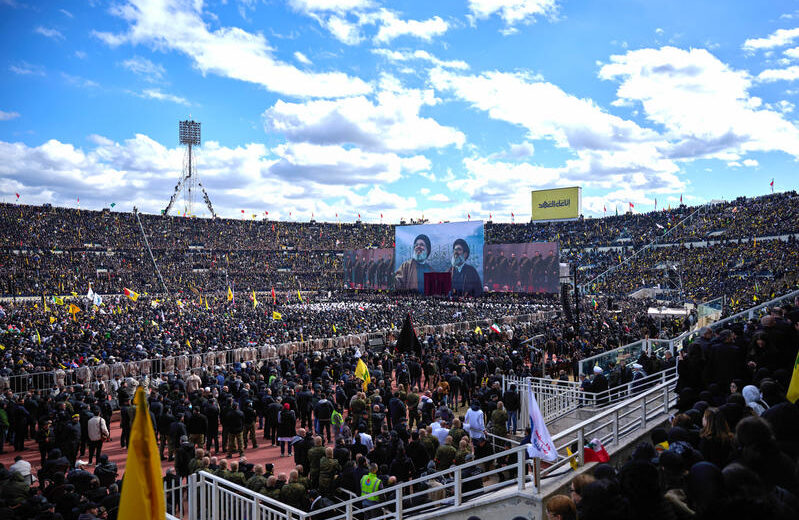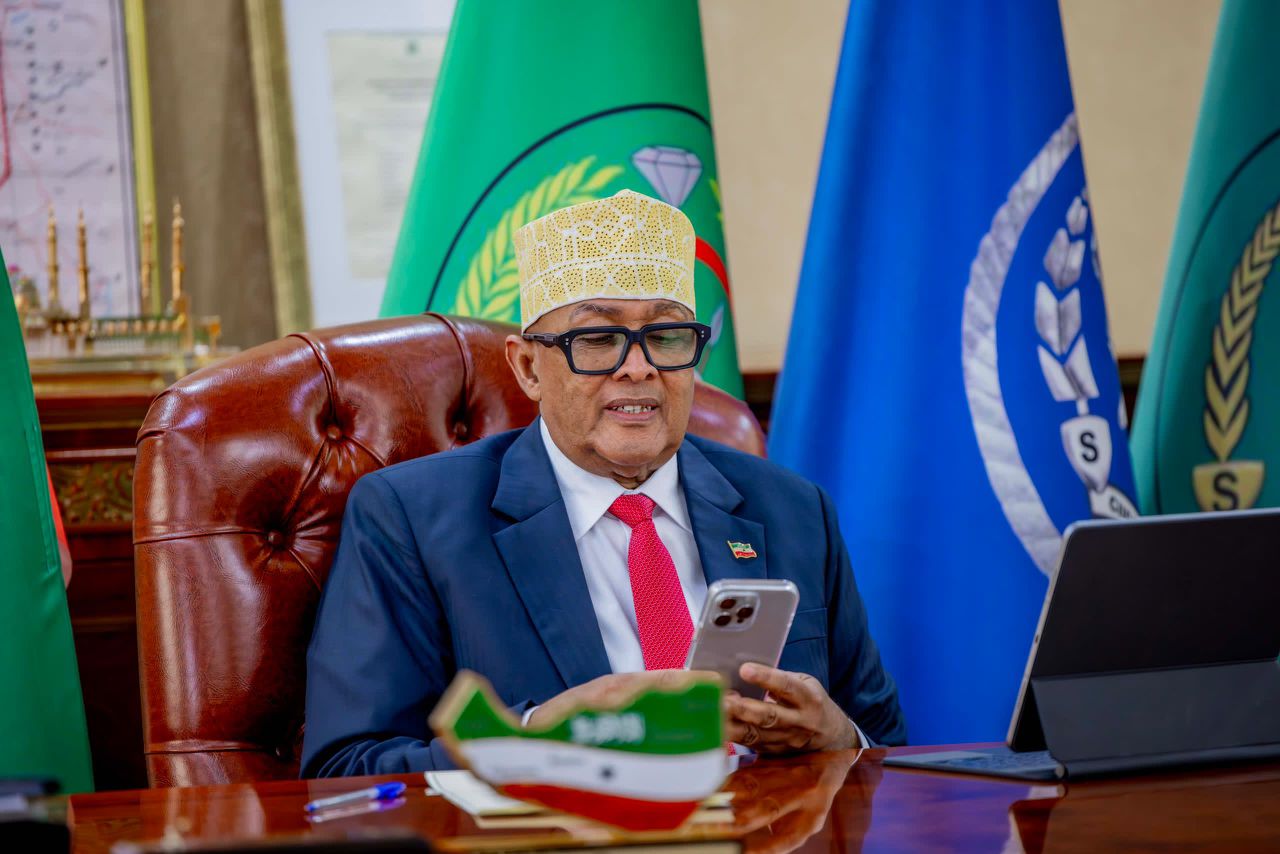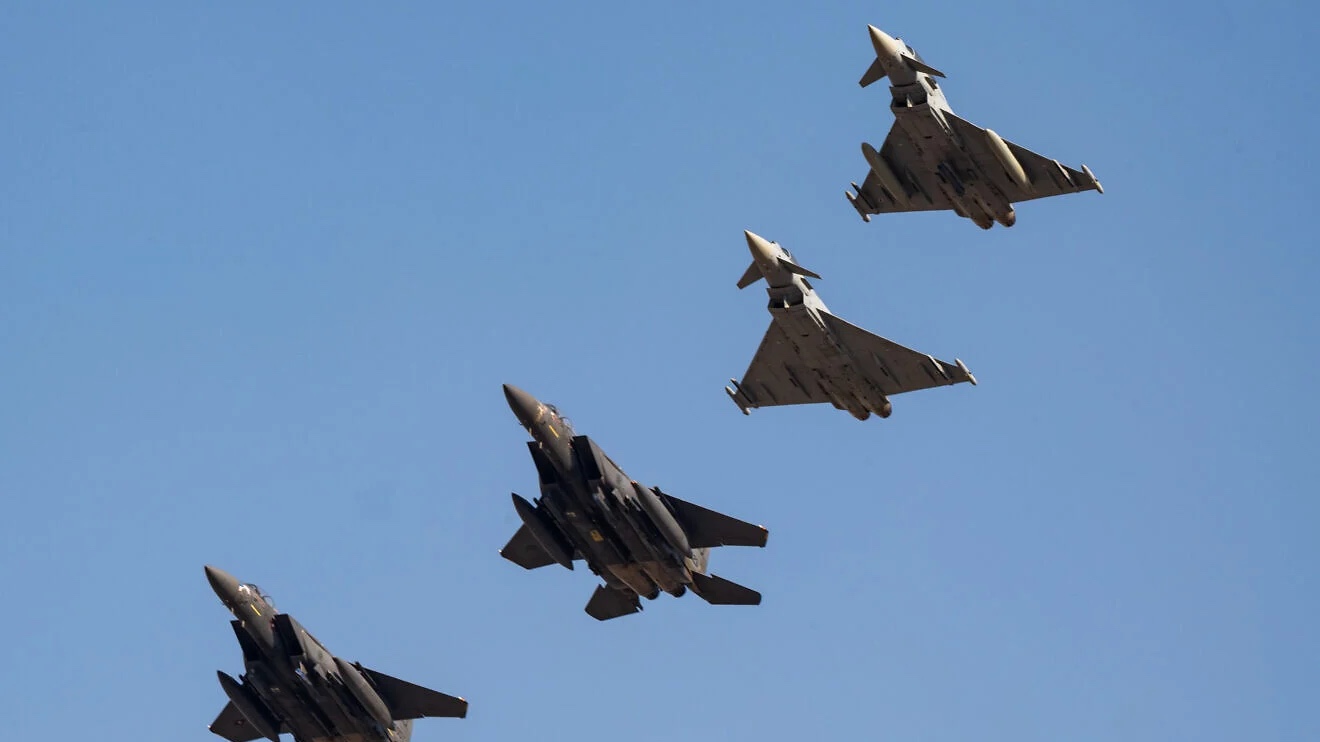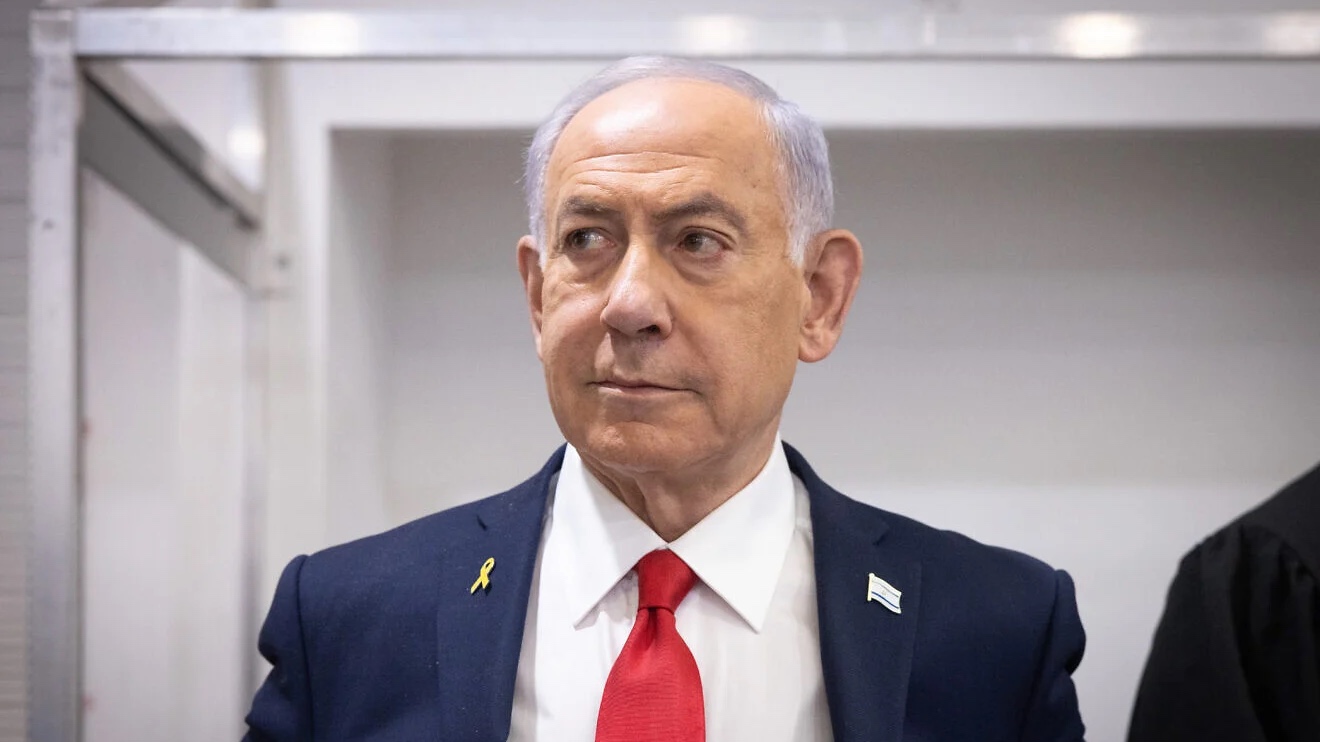Nearly five months have passed since September 27, when Israel dropped 80 bunker-busting bombs on Hezbollah’s headquarters in western Beirut, killing the terror organization’s secretary-general, Hassan Nasrallah, along with other senior officials. This week’s funeral for Nasrallah and his short-lived successor Hashem Safieddine indicates that Hezbollah has not yet recovered from the significant blow it suffered with the death of the man who was Lebanon’s unofficial leader for over two decades.
Attendance disputes and regional representation
There were significant disagreements between Hezbollah supporters and opponents regarding the number of participants. While supporters claimed over a million attendees, others insisted the number barely reached 800,000. Nevertheless, the number of participants was substantial, and most were Shiites. There was no foreign presence except for Shiite delegations from Iraq, Iran, and Yemen. The funeral highlighted a divided Arab world, split as usual between Hezbollah supporters and its enemies. Notably, Syrians—who experienced massacres by Hezbollah fighters that fought alongside Bashar al-Assad—stand out among the latter.
Many boasted about the size and organization of the funeral, while others mocked and rejoiced. Below are some examples of sentiments in the Arab world regarding the funeral of Hassan Nasrallah and Hashem Safieddine, whom some labeled as criminals. For instance, Syrians celebrated with an alternative, joyful “funeral.”
Conspiracy theories and symbolic interpretations
Several conspiracy theories circulated during Nasrallah’s funeral. For example, a Syrian Muslim claimed that Nasrallah’s body was not in the coffin and labeled him an infidel and enemy of Muslims, asserting that attending his funeral was religiously forbidden.
#جنازة_حسن_نصرالله التابوت فارغ‼️🇱🇧
هل يجوز الترحم على حسن زميرة ؟؟؟ وهل يجوز المشي في جنازته…. !!!!!#تشييع_السيد الفارغ #تشييع_نصرالله … pic.twitter.com/BeMPWHDRz2— ناصر آَل صوراني (@NaseerSourani) February 22, 2025
One image encapsulates what many Lebanese think and know: that Nasrallah, in life and even in death, served Iranian interests rather than Lebanese ones. This is highlighted by comparing assassinated Prime Minister Rafik Hariri’s funeral to Nasrallah’s. A striking feature of Nasrallah’s funeral was the near absence of Lebanese flags, suggesting that Hezbollah and its leaders have always been loyal to Iran, not Lebanon.
#لبنان #جنازة_حسن_نصرالله pic.twitter.com/bMuxg0ZE1L
— Hammor/ الهامور (@Hammor2) February 24, 2025
Image description: Rafik Hariri for Lebanon (top), Hassan Nasrallah for Iran (bottom).
During the funeral, Iranian flags dominated, with few Lebanese ones in sight.
اعلام ايران وحزبالة ترفرف في جنازة الهالك نصرالله.
وين الإعلام السعودية ؟؟
بس بدهم مصاري يقولوا الشقيقة السعودية.
شوفوا شو الاسم جادة قاسم سليماني.
لبنان لم يتحرر من ايران بعد pic.twitter.com/JwxFrSylLu— إيدي كوهين אדי כהן 🇮🇱 (@EdyCohen) February 23, 2025
Lebanese reactions
Many Lebanese celebrated Nasrallah’s funeral in their own way, with schadenfreude and jubilation. They not only recognize that he brought disaster upon Lebanon but also personally suffered from his actions. The Beirut Port explosion in August 2020, which killed hundreds, injured thousands, and caused extensive damage, is a prominent example.
لبنانيون يؤدون الواجب الوطني في تشييع حسن زميرة🤣🤣🤣🤣🤣#جنازة_حسن_نصرالله pic.twitter.com/97Uqp9BeYm
— ☆بغدادالمنصورة☆ (@antfadt) February 23, 2025
Arab world perspectives
The Arab world was not indifferent. Most believe Nasrallah was a tool in Iran’s hands, operated for the benefit of the Iranian regime, with the ultimate goal of subjugating Lebanon to Iran. Many Arab tweeters recalled Nasrallah’s dark past and his dream of turning Lebanon into a satellite of the Islamic Republic—words that came directly from him.
الجنازة حارة والميت كلب.
محشوم يالكلب #حسن_نصرالله #لبنان #بيروت #سید_حسن_نصرالله #جنازة_حسن_نصرالله #حسن_زميرة #انا_علي_العهد #حزباله
— عـدم – ADM (@ADM_3DM) February 23, 2025
Those who will miss Nasrallah are primarily Shiites, especially allied Shiite militias like the Houthis, the Popular Mobilization Forces, and Iraq’s Hezbollah, led by Abdul Aziz al-Muhammadawi, who attended and wept at the funeral.
رئيس أركان الحشد الشعبي العراقي الحاج أبو فدك وهو يبكي على سيّد شهداء الأمة السيّد حسن نصرالله رضوان الله عليه.
عندما تبكي الرجال فإعلم أنّ المصاب أليم. pic.twitter.com/RvWq0PFw7C
— السيّد باسل (@_sayedbasel) February 23, 2025
Not everyone admired Nasrallah; even the Arab elite despised him due to his ties with Iran, his role in the Syrian war, and his crimes in Lebanon. A journalist tweeted an image of Nasrallah in hell with the Iranian flag, writing, “Cursed be the nation that mourns your departure, cursed be the nation that calls you a martyr.”
#الكويت #الكويت_اليوم_الوطني #اليوم_الوطني_الكويتي #العيد_الوطني_الكويتي https://t.co/ysxdtAfAzB
— مصطفى كامل (@mustafakamilm) February 26, 2025
Public sentiment: A Twitter poll
Speaking of martyrdom, our correspondent conducted a Twitter poll asking, “Is Nasrallah a martyr?” Over 10,000 participated, with more than 65% saying no, summarizing the prevailing sentiment in the Arab world.
هل نصر الله شهيد ؟
— إيدي كوهين אדי כהן 🇮🇱 (@EdyCohen) February 23, 2025
A message to Lebanon’s interior
The pompous funeral of Hassan Nasrallah and Hashem Safieddine was held in Beirut without notable incidents. Five months after their deaths, Hezbollah organized a lavish event attended by hundreds of thousands, facilitated by a ceasefire. Current Hezbollah leader Naim Qassem delivered a recorded speech to the crowd. Undoubtedly, it was an elaborate affair, with some calling it one of the grandest funerals in the Arab world this century. The Arab world, particularly Egypt, recalls the massive funeral of President Gamal Abdel Nasser on October 1, 1970. Similarly, the funeral of Hezbollah’s secretaries-general will be remembered in this era.
However, the defeated and weakened Hezbollah used the event as a show of force against the Lebanese state—not Israel—directed inward. The message was clear: Hezbollah still exists and will continue Nasrallah’s path, as Naim Qassem affirmed in his speech. They aimed to demonstrate that they not only persist but also command hundreds of thousands of supporters and allies capable of blocking Beirut’s streets if necessary.
This comes after the new Lebanese president’s inauguration speech, where he promised to transfer Hezbollah’s weapons to the state, effectively disarming the group. The question remains: Will Hezbollah comply without a fight? The answer is almost certainly no; they will only disarm by force.
تحت هذه التغريدة ستجدون صور مميّزة للتشييع، أي شخص يمتلك صورة غير موجودة فليشاركنا بها. pic.twitter.com/wSc1l8dNqs
— Mhammed Allam | محمّد علّام (@mhammedallam) February 24, 2025














